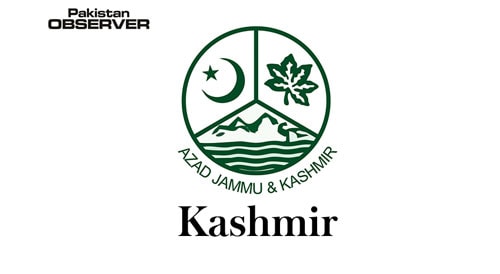Speaker at a large number of students gathered at Universitat Pompeu Fabra (UPF) in Barcelona said the unresolved conflict over Kashmir threatens the international peace and security of the world. It is far past time for the UN to take forceful action in order to restore peace to the region of South Asia, he added.
A large number of students gathered at Universitat Pompeu Fabra (UPF) in Barcelona to learn about the latest situation in Indian illegally occupied Kashmir.
Muhammad Shafiq Tabassam, President, Tehreek-e-Kashmir, Spain, expressed appreciation to the students for taking time during their hectic schedule. He expressed the hope for a successful and informative Q & A session after the speeches of the guests.
Dr Ghulam Nabi Fai, the key-note speaker and the Chairman of World Forum for Peace & Justice, thanked the students for taking time to be a part of this academic discourse.
Fai explained that the Kashmir dispute had an international dimension because it has the sanctity of the UN Charter and UN Security Council resolutions and has become a big hurdle or obstacle in the growth and stability of both India and Pakistan.
He said the unresolved conflict over Kashmir threatens the international peace and security of the world. It is far past time for the UN to take forceful action in order to restore peace to the region of South Asia, he added.
To a question, Dr Fai said that it was India which raced to the United Nations Security Council on January 1, 1948, and championed resolutions of the Security Council that prescribed a self-determination vote for Kashmiris on the heels of United Nations supervised demilitarization.
He said at that time, the United States championed the stand that the future status of Kashmir must be ascertained in accordance with the wishes and aspirations of the people of the territory.
Fai clarified that the people of Kashmir are fully aware that the settlement of the Kashmir dispute cannot be achieved in one move. Like all qualified observers, we visualize successive steps or intermediate solutions in the process. It is one thing, however, to think of a settlement over a relatively extended period of time. It is atrociously different to postpone the beginning of the process on that account.
Answering a question, why resolution of Kashmir was important, Fai stated that peace in the region would benefit not only those who are directly impacted by this conflict – Kashmiris – but India as well.
Fahim Kayani, one of the dynamic Kashmiri diaspora youth leaders and President of Tehreek-e-Kashmir, UK, who was the guest of honor, declared that it is interesting how problematic it seems for India & Pakistan to agree that Kashmiris themselves have a stake in any talks about their future.
He said that the people of Kashmir, like most people, are by their nature peaceful. “History testifies to the fact they do not seek war, and do not want to see their children die in a bloody conflict. They seek and would welcome a peaceful and negotiated settlement to the crisis for the sake of peace and stability in the region of South Asia,” he added.
Kayani explained that perhaps not by coincidence, the danger of nuclear threat will be of paramount interest. Kashmir has been regarded by President Bill Clinton as the most dangerous place on earth. Former Prime Minister of New Zealand, Helen Clark said, “Kashmir is a nuclear flashpoint.” It is clearly the bone of contention of nuclear confrontation between India and Pakistan, he said.—INP










